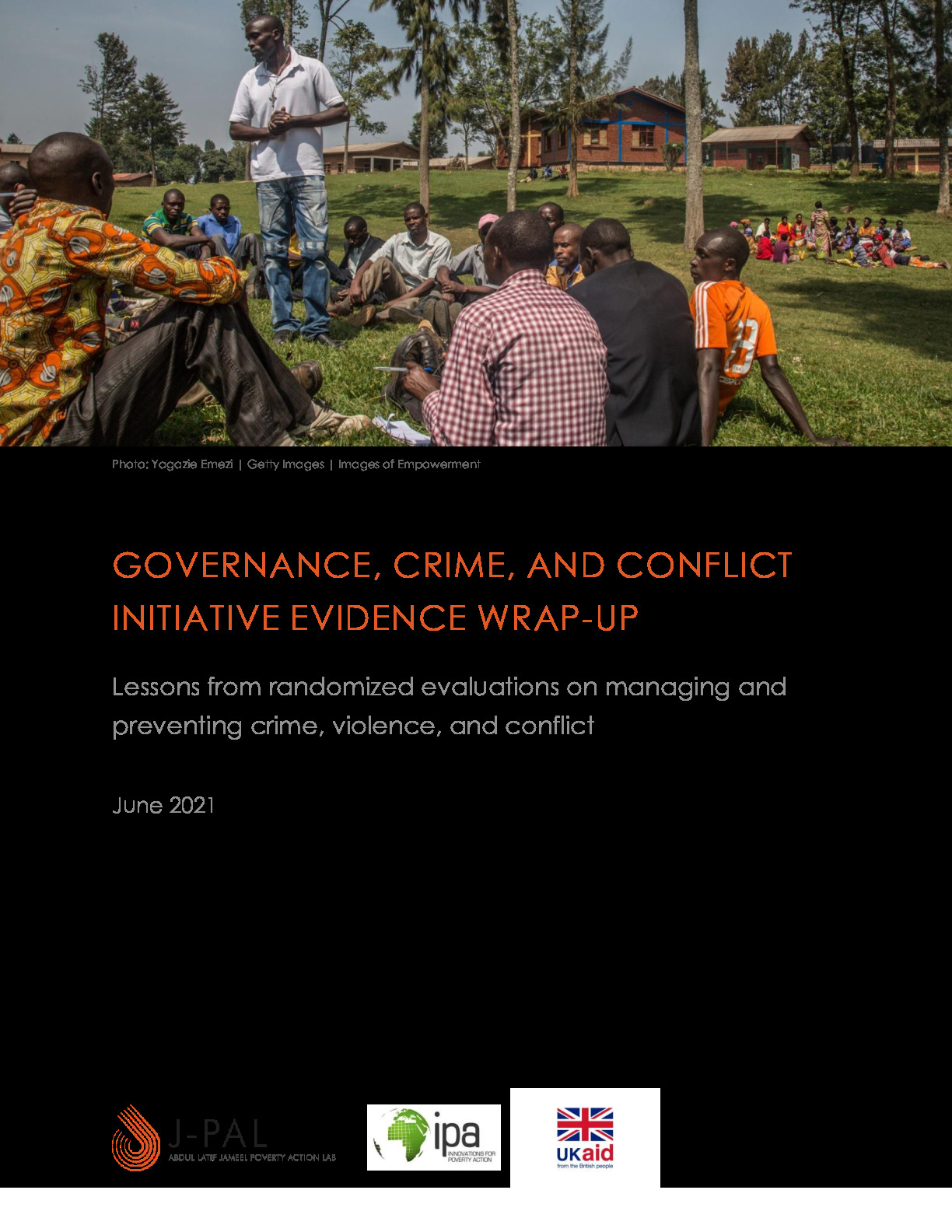Governance, Crime, and Conflict Initiative Evidence Wrap-up
What are the most promising strategies for reducing crime, violence, and conflict? The past decade has seen a dramatic expansion in the experimental literature designed to help answer this question. Moving beyond evaluations of individual programs, increasingly, these studies are striving to test broader hypotheses about how programs work (i.e. what are the key program components driving change) and to generate insights into human behavior (i.e. why individuals may be motivated to act in certain ways).
This evidence wrap-up, prepared by staff at J-PAL and Innovations for Poverty Action (IPA) for the Foreign, Commonwealth and Development Office (FCDO), offers a broad review of the expansion of this literature and seeks to capture some of the emerging insights from across these studies. The review has been prepared as part of J-PAL and IPA’s Governance, Crime and Conflict Initiative, a £15- million investment by FCDO launched in 2017 to produce new research on effective policies to promote peace and good governance, reduce crime, and support individuals and communities recovering from conflict.
